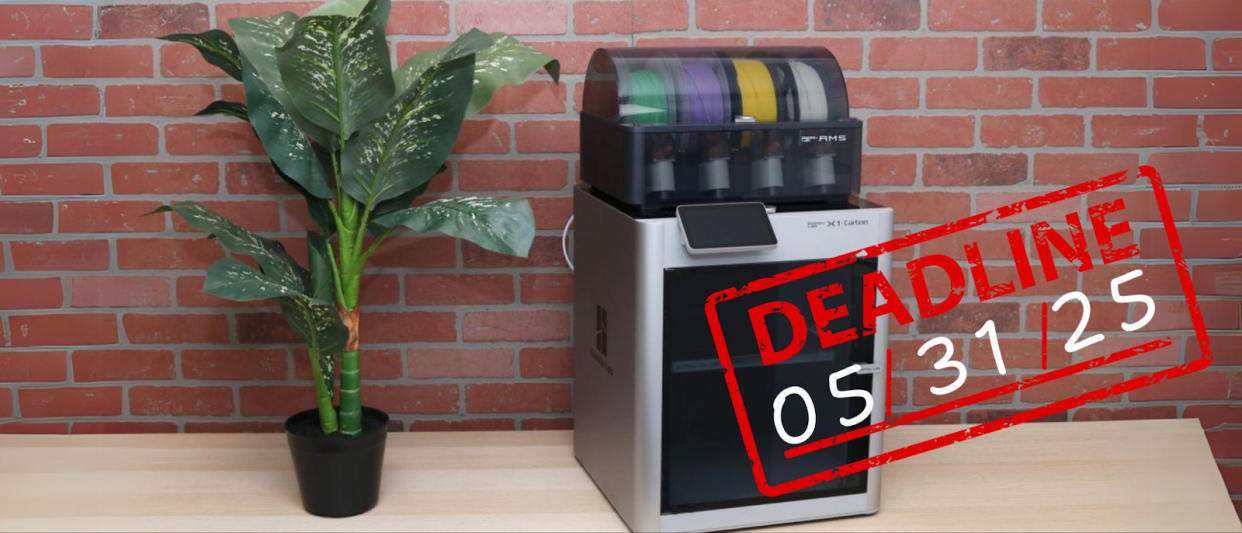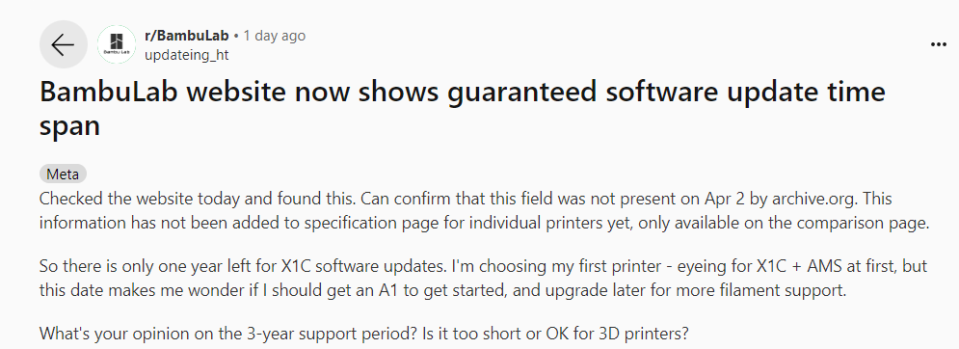Bambu Lab clarifies its firmware update promises for printers

UPDATE (April 25, 2024): Bambu Lab immediately updated it’s policy on software update support after the community voiced concern that the flagship X1-Carbon would soon be obsolete. The company states that “products will continue to work for their entire lifetime, with the same feature availability.” Expiration dates were extended by two years for bugfixes and feature updates, and a new line was added for “guaranteed security patch updates” extending two years further.
Bambu Lab recently posted on its company blog that the “first round of product launches” representing the First Generation of the Bambu Lab family is complete. That family of printers includes the X1, P1 and A1 model of machines, all of which have been reviewed by Tom’s Hardware and many of which sit on our list of best 3D printers. Further, the company acknowledges that its firmware infrastructure is still in the early stages of development.
The statement seems counter to a recent discovery by Reddit user Updateing_ht, who found an expiration date on Bambu Lab's guarantee of firmware updates.

So there is only one year left for X1C software updates. I'm choosing my first printer - eyeing for X1C + AMS at first, but this date makes me wonder if I should get an A1 to get started, and upgrade later for more filament support,” wrote Updateing_ht.
The expiration date only appears on the shopping comparison page of Bambu Lab’s website. At the very bottom, a “Guaranteed software update” date is listed. The X1 Carbon series, released in 2022, will expire first on May 31, 2025.

We searched the website and found no other reference to this expiration date. Bambu Lab did not return our request for further information.
It should be noted that firmware updates to any Bambu Lab printer are done automatically through the cloud. When updates are released, the printer’s screen will announce that new firmware is available and give the user the option to download it right away. The firmware is not downloaded from the website and can not be placed on a SD card for offline use.
The company has been notoriously closed source on both its printers and firmware, but in January begrudgingly allowed users to install third party X1 Plus custom software without the need to jailbreak machines. Bambu Lab insists tight control is the only way it can ensure a quality product. Installing X1 Plus can be done at the user’s own risk and will void the 3D printer’s warranty, even if the original Bambu Lab firmware is reinstalled.
“The internet making a mountain out of an anthill,” states YouTuber Clayton Parker, AKA Uncle Jessy.
Parker’s background is in software and technology. He’s seen this kind of behavior before and told Tom’s Hardware that it is usually a sign of a new product development. “A business can only properly support a product for so long. The Bambu lineup is already pretty robust and bug free.”
How long a 3D printer is supported comes down to philosophy. While a company like Prusa Research will support a printer almost indefinitely, new models are rare and infrequent. In twelve years of doing business, Prusa Research has only released three completely new consumer 3D printers: the Original Prusa i3 design (now in its fourth iteration), the Original Prusa Mini, and the Original Prusa XL.
We’ve not seen other 3D printer manufacturers announce an official end to servicing their printers. Instead, they simply fade away. Creality, one of the biggest and oldest Chinese manufacturers of 3D printers, does not list an end date for firmware, but you can no longer find information on their first printer, the CR-7, launched in 2015. You also won’t find their first popular printer, the CR-10, which launched in 2016. However, you can still find firmware for the best-selling seven-year-old Ender-3, last updated in 2022.

